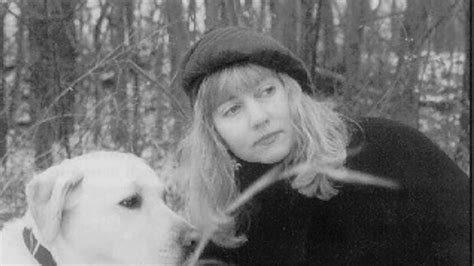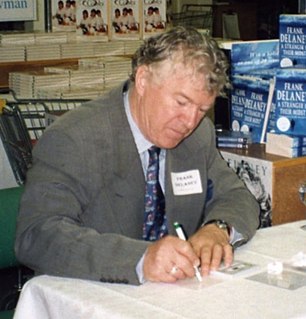A Quote by Christopher Guest
In real life, people fumble their words. They repeat themselves and stare blankly off into space and don't listen properly to what other people are saying. I find that kind of speech fascinating but screenwriters never write dialogue like that because it doesn't look good on the page.
Related Quotes
Reading aloud sounds like a good idea, but honestly, it doesn't work very well. Good dialogue in a book doesn't actually bear much resemblance to real-life dialogue. For example, if you've ever seen a word-for-word transcript of people talking, it doesn't read off the page very well. The trick is to make it *seem* like it's being spoken, not to make it speakable.
It was very definitely architectural. I was using the words on the page as some kind of equivalent of a physical model. But I never thought at that point that I wanted to move toward architecture. I wanted to move toward real space. Sure, that's probably another way of saying, I want to move toward architecture. But I didn't define real space in terms of architecture, then.
There's lots of good movies where you feel that the dialogue could be improvised, but very little was. The "Big Lebowski" was like that where people say "oh, you know, that sounds so..." and we'd always go back and get every man, every ellipses in there the way these guys write it. Because not only is it saying what Michael wants the character to say but the way they all speak kind of creates this tone because it's not exactly real.
I began to understand that there were certain talkers - certain girls - whom people liked to listen to, not because of what they, the girls, had to say, but because of the delight they took in saying it. A delight in themselves, a shine on their faces, a conviction that whatever they were telling about was remarkable and that they themselves could not help but give pleasure. There might be other people - people like me - who didn't concede this, but that was their loss. And people like me would never be the audience these girls were after, anyway.
When I see an old movie, like from the ’40s or ’50s or ’60s, the people look so calm. They don’t have smartphones, they’re not looking at computer screens, they’re taking their time. They’ll sit in a chair and just stare off into space. I think some day we’ll find our way back to that garden of Eden.
A lot of people think they can write poetry, and many do, because they can figure out how to line up the words or make certain sounds rhyme or just imitate the other poets they've read. But this boy, he's the real poet, because when he tries to put on paper what he's seen with his heart, he will believe deep down that there are no good words for it, no words can do it, and at that moment he will have begun to write poetry.
Just look around, in life, there's people who want to date people who look like themselves, and there are people who are just looking for a good fit. And a lot of times, a good fit is someone different than yourself. I'm not one to get too hung up on outside appearances. I find people attractive for more subtle reasons than just the way they look.
First a piece of Irish wisdom: you should always listen to a bookie. For they have a saying, 'Money tells a good story,' and somewhere in their odds is a kind of science-fiction existentialism that decrees that we, the people, know everything. In other words, betting patterns often make for good, unconscious soothsaying.
When I go to the cinema, I want to have a cinematic experience. Some people ignore the sound and you end up seeing something you might see on television and it doesn't explore the form. Sound is the other picture. When you show people a rough cut without the sound mix they are often really surprised. Sound creates a completely new world. With dialogue, people say a lot of things they don't mean. I like dialogue when it's used in a way when the body language says the complete opposite. But I love great dialogue I think expositional dialogue is quite crass and not like real life.





































